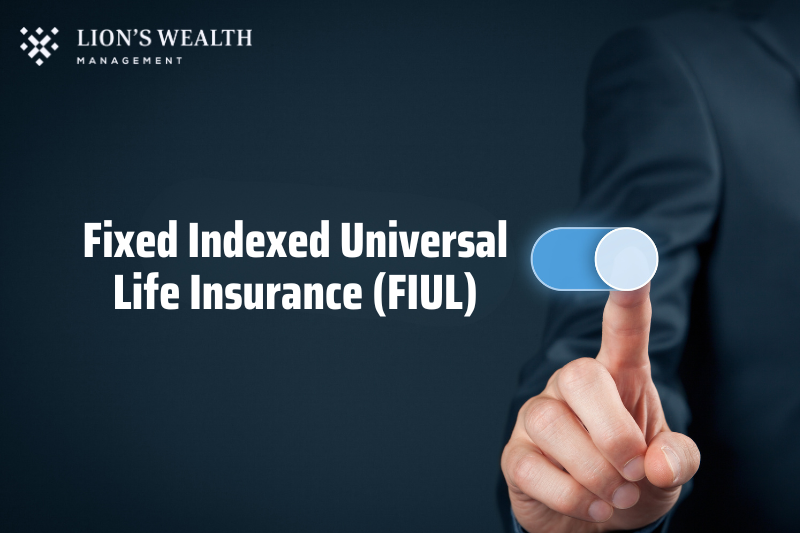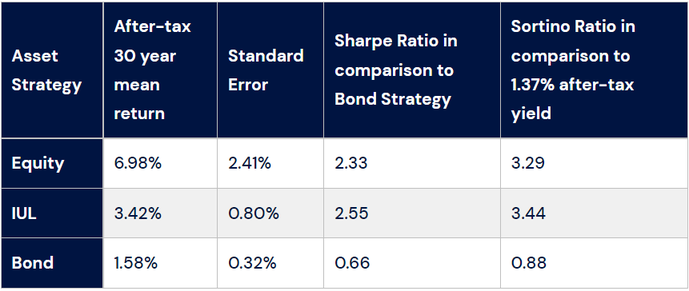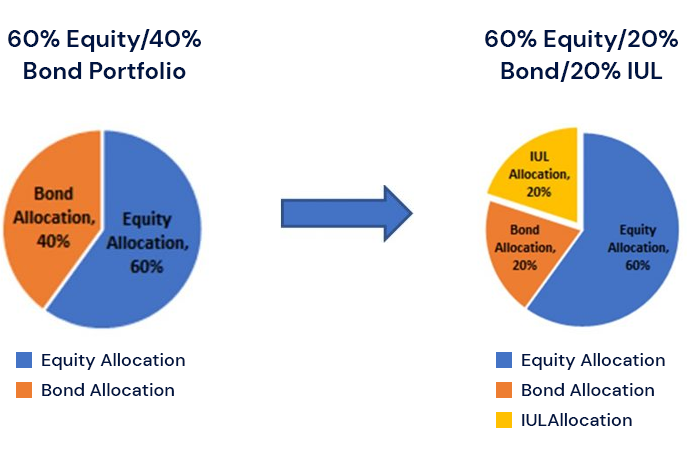All Categories
Featured
Table of Contents
Do they compare the IUL to something like the Vanguard Total Supply Market Fund Admiral Shares with no lots, a cost proportion (EMERGENCY ROOM) of 5 basis factors, a turn over proportion of 4.3%, and an extraordinary tax-efficient document of distributions? No, they contrast it to some awful proactively taken care of fund with an 8% tons, a 2% ER, an 80% turn over proportion, and a dreadful document of temporary funding gain distributions.
Shared funds frequently make annual taxable distributions to fund owners, also when the value of their fund has actually dropped in worth. Mutual funds not only call for revenue coverage (and the resulting yearly taxation) when the shared fund is rising in worth, however can additionally enforce earnings taxes in a year when the fund has gone down in worth.
You can tax-manage the fund, harvesting losses and gains in order to decrease taxable circulations to the capitalists, yet that isn't in some way going to change the reported return of the fund. The ownership of common funds might call for the mutual fund proprietor to pay estimated tax obligations (principal group universal life).

IULs are easy to place so that, at the proprietor's death, the beneficiary is exempt to either earnings or estate taxes. The exact same tax reduction strategies do not function nearly as well with shared funds. There are many, frequently expensive, tax catches related to the moment acquiring and marketing of shared fund shares, traps that do not put on indexed life Insurance coverage.
Chances aren't very high that you're going to be subject to the AMT because of your common fund circulations if you aren't without them. The rest of this one is half-truths at ideal. While it is real that there is no income tax obligation due to your heirs when they inherit the proceeds of your IUL policy, it is also real that there is no earnings tax obligation due to your heirs when they acquire a common fund in a taxed account from you.
Top Iul Companies
The federal estate tax obligation exception restriction mores than $10 Million for a pair, and growing every year with rising cost of living. It's a non-issue for the substantial majority of doctors, much less the rest of America. There are far better means to avoid estate tax obligation concerns than buying financial investments with low returns. Mutual funds might trigger income taxes of Social Security benefits.

The development within the IUL is tax-deferred and may be taken as free of tax income using finances. The policy owner (vs. the shared fund manager) is in control of his/her reportable earnings, hence enabling them to decrease or perhaps remove the taxation of their Social Safety benefits. This is fantastic.
Right here's another very little concern. It holds true if you buy a shared fund for say $10 per share prior to the distribution day, and it disperses a $0.50 distribution, you are then mosting likely to owe tax obligations (possibly 7-10 cents per share) regardless of the truth that you haven't yet had any gains.
In the end, it's truly concerning the after-tax return, not just how much you pay in taxes. You're additionally probably going to have more cash after paying those tax obligations. The record-keeping requirements for possessing common funds are considerably more intricate.
With an IUL, one's documents are kept by the insurance coverage business, copies of yearly statements are mailed to the proprietor, and circulations (if any kind of) are completed and reported at year end. This set is likewise type of silly. Obviously you must maintain your tax obligation documents in case of an audit.
Universal Life Insurance Instant Quote
All you need to do is shove the paper into your tax folder when it reveals up in the mail. Hardly a reason to acquire life insurance coverage. It resembles this man has actually never invested in a taxable account or something. Common funds are frequently component of a decedent's probated estate.
Additionally, they go through the delays and expenses of probate. The profits of the IUL plan, on the other hand, is always a non-probate circulation that passes beyond probate directly to one's named beneficiaries, and is consequently exempt to one's posthumous creditors, unwanted public disclosure, or similar hold-ups and expenses.
We covered this one under # 7, yet simply to summarize, if you have a taxable common fund account, you have to place it in a revocable trust fund (or also much easier, utilize the Transfer on Death designation) in order to prevent probate. Medicaid incompetency and life time revenue. An IUL can provide their owners with a stream of earnings for their whole life time, despite the length of time they live.

This is beneficial when arranging one's events, and transforming assets to income before an assisted living home arrest. Common funds can not be transformed in a similar way, and are nearly constantly considered countable Medicaid possessions. This is another stupid one promoting that bad people (you know, the ones who need Medicaid, a federal government program for the poor, to spend for their nursing home) should utilize IUL as opposed to mutual funds.
Difference Between Universal And Whole Life
And life insurance policy looks dreadful when contrasted fairly against a pension. Second, individuals that have money to acquire IUL over and beyond their retired life accounts are mosting likely to need to be awful at taking care of cash in order to ever receive Medicaid to spend for their assisted living facility costs.
Persistent and incurable health problem rider. All plans will enable a proprietor's easy access to cash money from their policy, frequently forgoing any type of surrender penalties when such people suffer a major ailment, need at-home care, or become restricted to an assisted living home. Shared funds do not provide a comparable waiver when contingent deferred sales fees still apply to a common fund account whose owner needs to sell some shares to fund the expenses of such a keep.
Indexed Universal Life Express Mutual Of Omaha
You get to pay more for that advantage (biker) with an insurance plan. What a large amount! Indexed universal life insurance policy provides survivor benefit to the beneficiaries of the IUL owners, and neither the proprietor nor the recipient can ever before lose money because of a down market. Mutual funds supply no such guarantees or survivor benefit of any kind of kind.
I absolutely don't require one after I reach monetary independence. Do I desire one? On average, a purchaser of life insurance policy pays for the true expense of the life insurance policy advantage, plus the expenses of the policy, plus the profits of the insurance policy business.
Universal Life Insurance Company Ratings
I'm not entirely sure why Mr. Morais included the entire "you can't lose cash" again here as it was covered fairly well in # 1. He just intended to duplicate the very best selling point for these points I intend. Once more, you don't shed small dollars, yet you can lose genuine bucks, in addition to face serious possibility cost because of low returns.

An indexed global life insurance coverage policy proprietor might trade their policy for a completely different plan without causing earnings tax obligations. A mutual fund proprietor can not relocate funds from one mutual fund firm to an additional without marketing his shares at the former (hence setting off a taxed event), and redeeming new shares at the latter, frequently subject to sales charges at both.
While it holds true that you can trade one insurance coverage for one more, the factor that people do this is that the first one is such a horrible plan that also after acquiring a brand-new one and experiencing the early, adverse return years, you'll still appear ahead. If they were marketed the appropriate policy the very first time, they should not have any type of desire to ever exchange it and experience the very early, unfavorable return years again.
Table of Contents
Latest Posts
Index Linked Term Insurance
Fixed Universal Life
Max Funded Life Insurance
More
Latest Posts
Index Linked Term Insurance
Fixed Universal Life
Max Funded Life Insurance